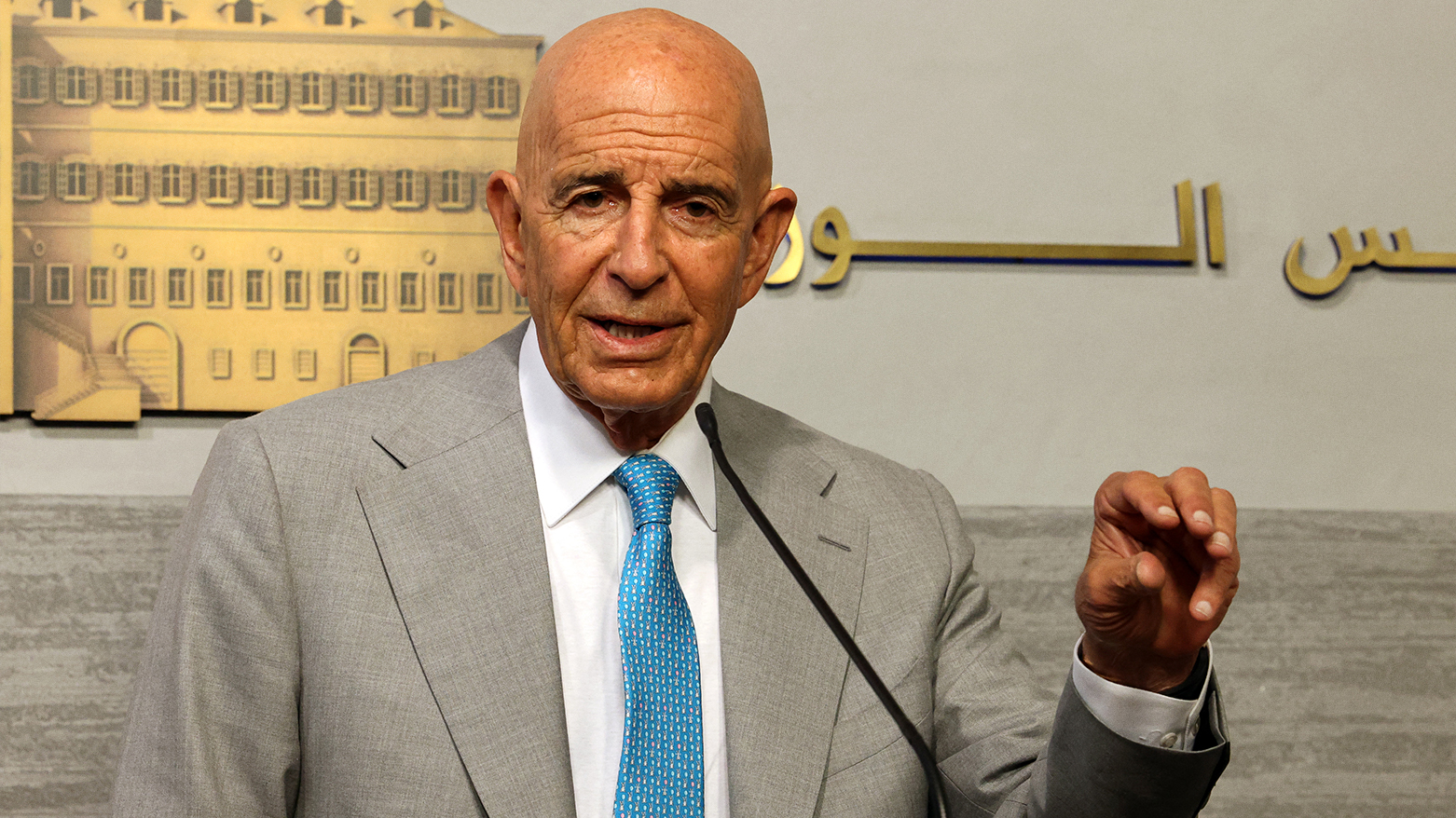'As Long As Hezbollah Retains Arms, Words Will Not Suffice,' U.S. Envoy Tells Lebanese Government
U.S. envoy pressures Lebanon to disarm Hezbollah, whose leaders reject the demand amid border clashes. Beirut's government reiterates its push for state sovereignty, creating a tense standoff over the monopoly of arms.

ERBIL (Kurdistan24) – In a direct and public challenge to both the Lebanese government and Hezbollah, U.S. Ambassador to Türkiye and Special Envoy for Syria, Tom Barrack, has declared that Lebanon's credibility rests on disarming the powerful Shiite group, warning that without action, the country will be consigned to a "stumbling status quo."
In a post on the social media platform X, Ambassador Barrack commented on a report from the newspaper Asharq Al-Awsat, stating, “The credibility of Lebanon’s government rests on its ability to match principle with practice. As its leaders have said repeatedly, it is critical that ‘the state has a monopoly on arms.’ As long as Hezbollah retains arms, words will not suffice.”
He concluded with a pointed call to action: “The government and Hezbollah need to fully commit and act now in order to not consign the Lebanese people to the stumbling status quo.”
The credibility of Lebanon’s government rests on its ability to match principle with practice. As its leaders have said repeatedly, it is critical that “the state has a monopoly on arms.” As long as Hizballah retains arms, words will not suffice. The government and Hizballah…
— Ambassador Tom Barrack (@USAMBTurkiye) July 27, 2025
Barrack's comments came in response to an Asharq Al-Awsat report detailing the complex and tense situation in Lebanon. The newspaper wrote that Lebanese President Joseph Aoun had acknowledged on Friday that slow-moving negotiations with Hezbollah over its weapons were ongoing directly with the group.
According to the report, Aoun expressed cautious optimism, saying, “There is some responsiveness to the ideas we’re discussing, even if things are moving at a slow pace.”
However, Hezbollah issued a swift rejection of the American proposal. The Asharq Al-Awsat piece noted that the group insisted it is only concerned with implementing UN Resolution 1701, which calls for Israel’s withdrawal from Lebanese territory. Hezbollah MP Ihab Hamadeh affirmed this stance, telling the newspaper that while there is general agreement on the principle of a state monopoly on arms, it must be accompanied by a comprehensive national defense strategy, especially given ongoing Israeli attacks.
The situation on the ground remains volatile. Asharq Al-Awsat reported that Israeli airstrikes have intensified, with a drone strike killing a Hezbollah member in Bint Jbeil on Friday. In response to the repeated attacks, residents of the border town of Aita al-Shaab issued a statement condemning government inaction and warning they may resort to self-defense, declaring, "Security is not a luxury; it is our right."
A State Pushing for Sovereignty
The U.S. envoy’s public pressure aligns with a growing, albeit challenging, push from within Lebanon’s own leadership to assert state authority over all its territory and armed actors.
This internal effort has been led by Lebanese President Joseph Aoun, who has repeatedly articulated the principle of state sovereignty. In a previous televised interview with Egypt's "ON TV," Aoun stated forcefully, “Hezbollah has the right to participate in politics, but weapons must remain in the hands of the state.” He also confirmed that Beirut has called for indirect, U.S.-sponsored negotiations with Israel to resolve land border issues.
The Lebanese government has formalized this stance in high-level security meetings. In an emergency session of the Higher Defense Council at Baabda Palace, top officials issued a stern warning to Hamas and other non-state groups. According to a previous report by Kurdistan24, the Council emphasized that no faction would be allowed to use Lebanese soil for attacks against neighboring states.
During that meeting, President Aoun invoked the 1989 Taif Accord as the constitutional basis for asserting national authority. “Security stability must be consolidated,” he declared, rejecting any attempt to turn the country into a "platform for destabilization."
Prime Minister Nawaf Salam echoed these calls, warning that any breach of Lebanon's neutrality would undermine its fragile foundations. The Council addressed recent rocket attacks launched from Lebanese territory, confirming arrests had been made. It recommended that the government formally warn Hamas against exploiting Lebanese land for hostile activities and vowed to impose the "strictest measures" to preserve peace.
This determined posture from Lebanon’s leadership, now amplified by direct pressure from the United States, sets the stage for a critical confrontation over the fundamental issue of sovereignty and the state's exclusive right to bear arms.